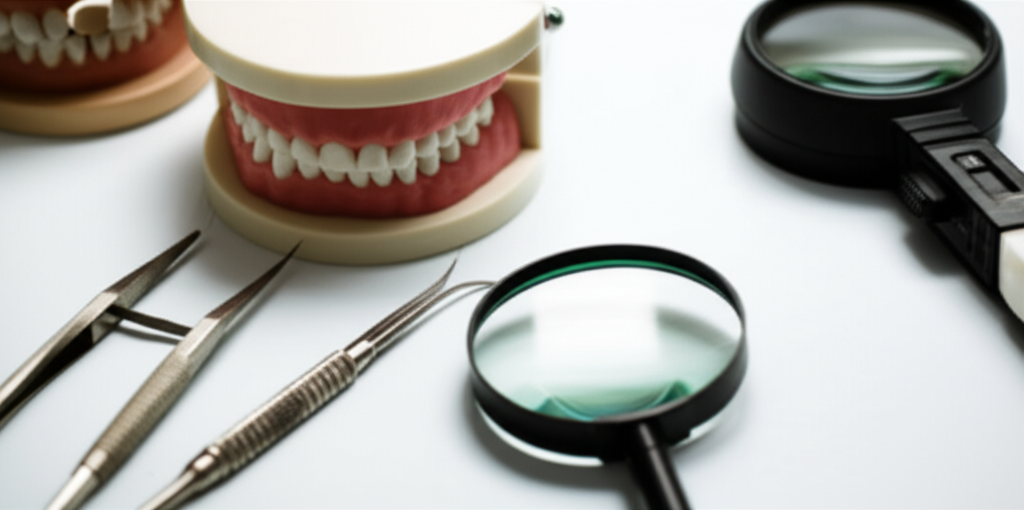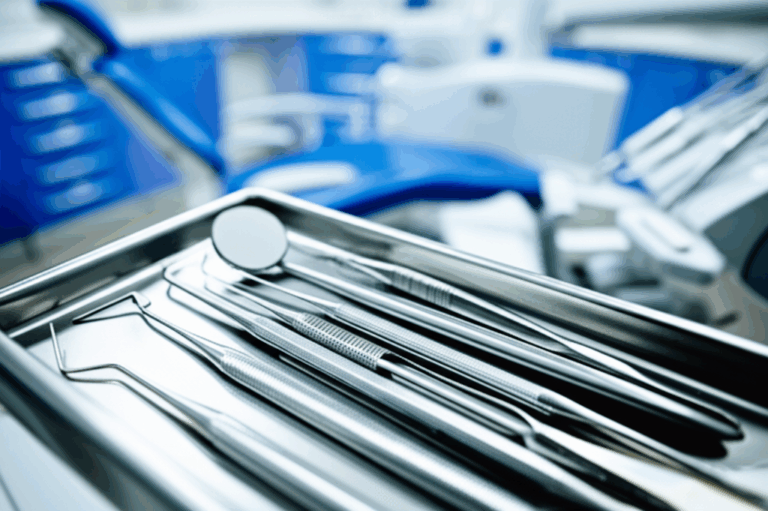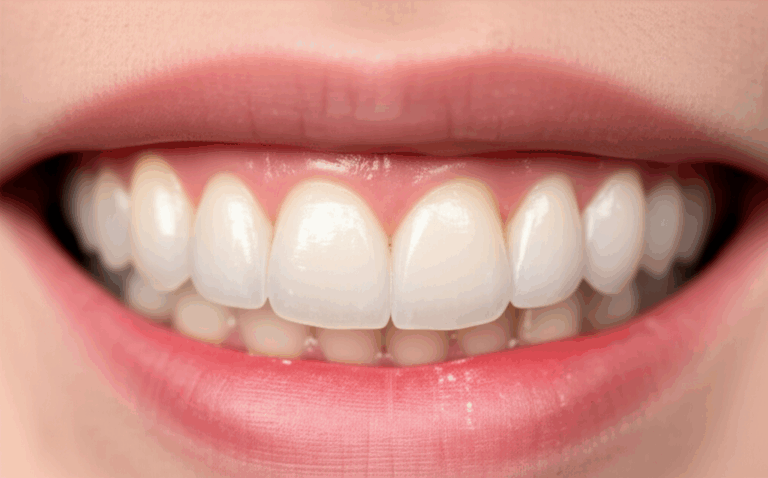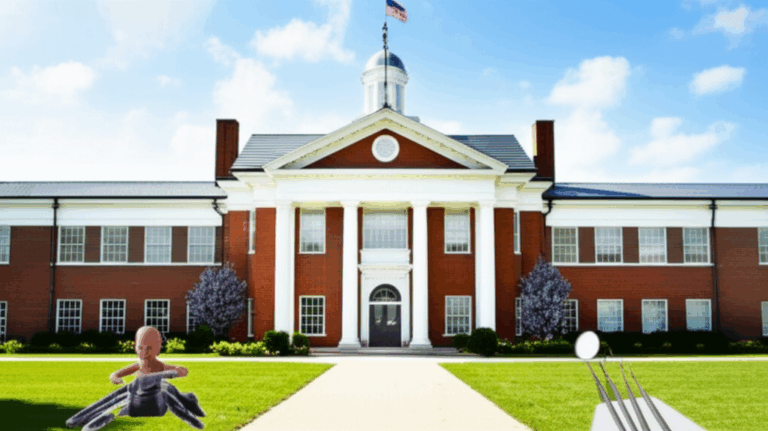
How to Become a Forensic Dentist: Your Complete Career Guide
That Love for Mysteries—Can You Really Become a Forensic Dentist?
Ever watched a crime show and wondered, “Who helps figure out unknown victims, or sees how someone’s teeth helped solve a case?” Maybe you like both science and true crime. Perhaps you’re thinking about a future where you don’t chase criminals but use bite marks or dental records to answer tough questions. If so, you’re not alone. Lots of students and future dentists dream of mixing their love for healthcare with detective-style work in forensics.
But here’s the big question: How do you actually become a forensic dentist? Is there a special “CSI: Dental” degree? How long does it really take, what’s the job like, and is all that work worth it? Relax. You’ve come to the right place. We’ll explain everything—from choosing a college to what the job is really like—so you’re ready for this unique and sometimes tough career.
In This Article: What We’ll Go Over
- What Is a Forensic Dentist? An Easy Look at Dental Forensics
- The School Path: Step-by-Step Requirements
- After School: Getting Experience and Certificates
- A Day in the Life: What Does a Forensic Dentist Do?
- Important Skills and Qualities for Forensic Dentists
- Career Outlook and Salary for Forensic Dentists
- Is Forensic Dentistry Right for You? Pros and Cons
- Frequently Asked Questions (FAQs)
- Conclusion: Your Path in Forensic Dentistry
What Is a Forensic Dentist? An Easy Look at Dental Forensics
What Is Forensic Odontology?
Let’s start with the basics. Forensic dentistry, also called forensic odontology, means using dental skills to help with law or legal cases. When police or coroners need to find out who someone is, check a person’s age, or look at bite marks from a crime scene, they call in a forensic dentist. These experts use teeth, jawbones, dental x-rays, and sometimes fillings to answer big questions for courts, families, or health officials.
What Does a Forensic Dentist Do?
- Identifying People: Matching dental records with unknown remains, especially when there is fire or other disasters.
- Bite Mark Checks: Looking at bite marks and comparing them to suspects.
- Guessing Age: Using teeth to figure out someone’s age, sometimes to help in both living and dead cases.
- Expert in Court: Explaining what they found as a witness in trials.
- Good Recording: Taking careful notes, photographs, and handling evidence right.
Imagine being a Sherlock Holmes, but with a mouth mirror and x-rays instead of a magnifying glass.
Why Choose Dental Forensics?
It’s not a job for people who easily get upset. But if you’re the right person, it’s a very rewarding mix of helping people, science, and real-world problem-solving. You can help families find answers, help catch criminals, and even make things better after disasters—all by using dental skills most people don’t have.
The School Path: Step-by-Step Requirements
How do you get started? Think of becoming a forensic dentist as climbing a ladder. Each step—college, dental school, extra training—gets you ready for the real work. Here’s how it breaks down, step by step.
Step 1: Starting Out – Your Bachelor’s Degree (Pre-Dental)
First, get your college degree. You don’t have to major in biology, but it helps to take science classes: biology, chemistry, anatomy, and maybe even some psychology.
Common Classes and Majors:
- General Biology
- Chemistry (General and Organic)
- Physics
- Microbiology
- Statistics or Math
Good Experience:
- Volunteer at dental or medical clinics.
- Join science research, especially if it connects with forensics or human biology.
- Shadow local dentists or forensic experts, if you can.
Most dental schools want a 4-year degree, but some will take you with at least 3 years if you’re a strong student.
Step 2: Dental School (DDS or DMD)
With your bachelor’s done, you’ll apply to dental school to earn a Doctor of Dental Surgery (DDS) or Doctor of Medicine in Dentistry (DMD).
The Dental Admission Test (DAT)
Most U.S. dental schools need you to take the DAT. It’s like the MCAT but for dentists, and covers biology, chemistry, math, and reading.
What to Expect in Dental School
Dental school lasts four years. The first half is lots of science—anatomy, how the body works, diseases—then you’ll spend the second half treating real patients with help from teachers.
Getting Licensed After Dental School
To work as a dentist, you must pass both written and real-patient exams, then get your state license. Without this, you can’t move on to serious forensic work.
Step 3: Getting Forensic Training
Now you have your DDS or DMD, but you’re not finished yet. Most forensic dentists need extra training.
Post-Grad Programs and Fellowships
Look for programs or fellowships aimed at forensic odontology. These might be at universities or through groups like the American Academy of Forensic Sciences or the American Board of Forensic Odontology (ABFO). You’ll learn about bite mark checks, ID work, and acting as an expert in pretend trials.
Graduate Certificates in Forensic Odontology
Some schools offer short programs (1–2 years) that teach both the theory and practice of dental forensics.
Residencies (if offered)
Not many places have these, but top dental schools might let you train in forensic odontology or a related field.
Tip: You can do basic training in regular dental clinics, but those who want to be true experts need real forensic cases. Attend meetings by the ABFO or AAFS to connect with the best in the field.
After School: Getting Experience and Certificates
Real Experience: Internships, Mentors, and Casework
Forensic dentistry isn’t just classroom stuff. You need to use your skills in actual cases.
Working With Medical Examiners and Coroners
Many start by helping at the local coroner or medical examiner’s office, where you can help with real cases about people who have died.
Working With Police
You might help the police with bite mark cases, child abuse checks, or work during disasters to match teeth to people.
Having a mentor is very helpful. Learn from experienced forensic dentists and join research projects at your school, if you can.
Getting Board Certified: The ABFO
If you want to reach the top, get certified by the American Board of Forensic Odontology (ABFO).
What You Need for ABFO
You must:
- Have your dental license in good standing.
- Complete several supervised forensic dental cases (usually at least 5–10 good cases).
- Meet all other ABFO rules about training and work experience.
What the Test Is Like
To be certified, you must:
- Pass a tough written and real-case exam.
- Show your real forensic casework to a review board.
- Keep learning and doing cases to keep your certificate.
Board certification is not needed for every job, but it helps you be seen as an expert.
A Day in the Life: What Does a Forensic Dentist Do?
Typical Jobs and Cases
You won’t have two days that look the same, but you’ll often do:
- Identifying People: Checking dental x-rays and records after fires, accidents, or disasters, bringing answers to families.
- Bite Mark Checks: Matching bite patterns in criminal cases, which could affect a trial’s outcome.
- Age Guessing: Looking at dental development to find someone’s age in cases about missing people or immigration.
- Looking for Dental Injury: Checking for signs of abuse in mouths, especially for children or weak adults.
- Being an Expert Witness: Explaining your findings in court in easy-to-understand words.
Imagine your workspot like a crime lab, but with x-rays, dental models, and photos, instead of lab coats and test tubes.
Workplaces
- Medical Examiner Offices (working with cases of death)
- Coroner’s Offices
- Police or Law Agencies (helping with cases)
- Colleges or Universities (teaching or research)
- Private Practice (being an independent expert)
Many forensic dentists do both regular dentistry and some forensic work, especially in smaller towns or if they teach.
Important Skills and Qualities for Forensic Dentists
Do you have what it takes? Here’s what good forensic dentists usually have:
Like Solving Puzzles
You’ll have to figure out hard problems almost every day and need to enjoy mystery-solving.
Great Attention to Detail
Sometimes a tiny chip or filling could be the key to the answer.
Strong Communication
You’ll have to explain technical stuff to police, lawyers, and families. Being clear, caring, and patient is important.
Strong Nerves
You’ll sometimes see tough things—violence, children in trouble, even death. You must know how to take care of yourself and set emotional boundaries.
Honesty and Professionalism
As an expert, your reputation always matters. You can’t cut corners because your evidence helps decide justice.
Career Outlook and Salary for Forensic Dentists
Wondering if the pay is good or if jobs exist for someone like you? Here’s the answer.
Are Jobs Growing?
- Forensic odontology is a small field. There aren’t as many jobs as for regular dentists, but demand goes up after disasters, or in big cities, or wherever courts need experts.
- A lot of jobs are part-time or consulting, not always full-time—for example, helping as an expert on cases when needed.
Average Pay and What Affects It
- Full-time forensic dentists can make around $100,000 to $200,000 a year, depending on experience and where they work.
- Some forensic experts who still do regular dentistry charge $500–$2,000 per case, or do hourly work for court cases.
- Your pay depends on if you work at a college, for the government, or on your own.
Moving Up
With more experience, you might:
- Teach new forensic dentists.
- Lead big cases for government or international disaster work (like helping Interpol).
- Do research or help set up new rules for forensic science.
Is Forensic Dentistry Right for You? Pros and Cons
Let’s be honest—every job has good and bad sides. Here’s the lowdown on the life of a forensic dentist.
The Good Parts
- You Make a Difference: Your work could help solve crimes or give families peace.
- Exciting Work: It’s always a new puzzle, and mixes medicine, law, and science.
- Special Skills: You’ll be in a small group of experts.
- Varied Work: You might do teaching, research, or hands-on cases during your career.
The Hard Parts
- It Can Be Sad or Tough: You’ll see or hear about bad things, including child abuse or disasters. You’ll need good ways to cope.
- Not Many Full-Time Jobs: Most start out part-time and keep doing regular dental work too.
- High Standards: Courts and others expect perfect work from forensic dentists.
Frequently Asked Questions (FAQs)
How long does it take to become a forensic dentist?
Usually 10 to 14 or more years: 4 years of college, 4 years of dental school, 1–3 years of special training, plus more casework before you’re on your own.
Do I need to be a practicing dentist first?
Yes, you must first be a licensed dentist to get the hands-on skills forensic cases need.
Are there lots of jobs?
No, it’s a small field. There are always more regular dentists than forensic dentists. But after disasters, or in big cities, new experts are needed.
What’s the difference between a forensic and a regular dentist?
Regular dentists treat teeth in living patients; forensic dentists use dental science to help law cases, often helping courts or identifying those who have passed away.
Can forensic dentists work in other countries?
Yes, especially if you have extra certificates (like from ABFO) and join world teams like Interpol or the World Health Organization. But each country has its own rules.
Your Path in Forensic Dentistry
A quick wrap-up of what really matters and what to do next.
Key Takeaways:
- Becoming a forensic dentist takes years and hard work. Plan on 10–14 years to be an expert.
- You need a strong science and dental background and solid forensic experience.
- Real-world experience and good mentors matter a lot. Try to shadow experts, volunteer, or help in real cases as soon as you can.
- Getting board certified by the ABFO or similar makes you a true expert.
What Should You Do Now?
- Still in school? Do your best in science classes, volunteer, and try to meet local dental or forensic programs.
- Already in dental school? Ask about research or forensic cases. Look for certificate courses or post-graduate programs in forensics.
- Thinking about careers? Use resources like the ABFO or American Academy of Forensic Sciences to learn more and see real stories.
More Resources for You
- American Board of Forensic Odontology (ABFO)
- American Academy of Forensic Sciences (AAFS)
- National Institute of Justice: Forensic Dentistry
If you want to learn about new dental tech—like digital imaging or 3D printing—see what a digital dental lab or a 3D dental lab is doing. Those interested in fixing damaged teeth for forensic cases can check out a crown and bridge lab to see how dental ID really works.
Final Thoughts
- Forensic dentistry is a mix of science, service, and solving mysteries.
- It takes long training, hands-on work, and strong nerves.
- The biggest reward? Helping families and courts find truth and closure.
Ready to start? Stay curious, keep asking questions, and take that first step toward this meaningful career. With your skills and detective mindset, you may change lives—one case at a time.
(This article is for friendly advice. For personal help, talk directly with forensic dental groups or real experts.)








